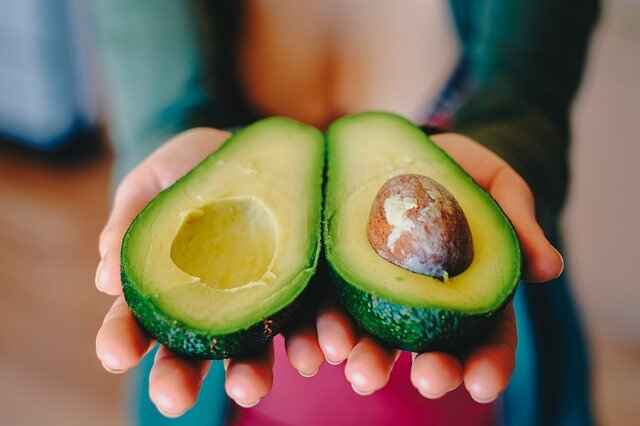The third most common mineral in the human body is potassium (K). It helps the body control fluid balance, transmit nerve messages, and control muscle contractions. All body tissues require potassium and due to the modest electrical charge it carries, which activates a number of cell and nerve activities, it is sometimes referred to as an electrolyte.
What Is Potassium (K)? What Are The Functions Of K?
Potassium is a mineral that aids in maintaining the body’s fluid balance and supports healthy cardiac function. Its primary function in the body is to support the maintenance of regular fluid levels inside our cells. Its opposite, sodium, helps to keep fluid levels within cells normal. Additionally, potassium supports proper blood pressure and aids in the contraction of muscles. (Source)
Also Read: Health Benefits of Avocado Fruit: Nutrient Value, Health Facts & Advantage

How Much Potassium Do I Need? What Are The Recommended Amounts?
3,500 mg of potassium daily is needed for adults (19 to 64 years). All the potassium you require should be available in your everyday diet. There isn’t enough information, according to the U.S. Dietary Reference Intakes, to define a potassium RDA. However, a sufficient intake (AI) for K has been defined by the National Academy of Medicine.
- The AI is 2,300 mg per day for women aged 14 to 18, and 2,600 mg per day for those over 19. Depending on age, the AI for women who are pregnant or nursing ranges from 2,500 to 2,900.
- The AI is 3,000 mg for men aged 14 to 18 and 3,400 mg for men aged 19 and older. The average daily consumption of potassium for adults is thought to be 3,016 mg for males and 2,320 mg for women.
What Happens If There Is Excess?
If you consume too much K, you may have nausea, diarrhoea, and stomach pain.
What Are The Sources Of K? What Food Contains Potassium?
Numerous foods, particularly fruits and vegetables, are rich sources of potassium. (Source) Rich sources include leafy greens, beans, nuts, dairy products, and starchy vegetables like winter squash. (Sources)
- Dried fruits (raisins, apricots)
- Potatoes
- Spinach, broccoli
- Beet greens
- Avocado
- Banana
- Cantaloupe
- Oranges, orange juice
- Coconut water
- Tomatoes
- Diary And plant kinds of milk (soy, almond)
- Yogurt
- Cashews, almonds

Deficiency Of Potassium: The Possible Disorders And Their Symptoms
The kidneys remove excess potassium from the body through urination in order to maintain appropriate blood levels of potassium. Stool and perspiration are additional ways that potassium can be lost. As a result of typical daily losses, at least 400–800 mg must be obtained by meals each day. Hypokalemia is a deficiency that can result from any circumstances that cause more fluid loss than usual, such as vomiting, diarrhoea, and some drugs like diuretics.
The majority of hospitalised individuals with hypokalemia take drugs that make their bodies drain too much potassium. Inflammatory bowel illnesses, which can lead to diarrhoea and nutrient malabsorption, are another group of persons who experience it.
Also Read: Health Benefits Of Yogurt: Nutrition, Healthy Facts & Side Effects
Since potassium is present in so many foods, it is uncommon for a deficiency to be brought on by inadequate dietary intake alone. However, if this deficiency is accompanied by excessive sweating, the use of diuretics, the abuse of laxatives, or severe nausea and vomiting, hypokalemia can develop very quickly. A lack of magnesium is another factor, as the kidneys require magnesium to reabsorb potassium and keep cell levels normal.
- Fatigue
- Muscle cramps or weakness
- Constipation
- Muscle paralysis and irregular heart rate (with severe hypokalemia)
Toxicity: What Happens in Case Of Excess Of K
Hyperkalemia refers to an excessive level of potassium in the blood. In healthy individuals, the kidneys effectively eliminate excess potassium, primarily through the urine. However, certain circumstances, such as advanced renal illness, using drugs that cause the body to retain potassium (such as NSAIDs), or kidney-impaired individuals who consume a high-potassium diet (more than 4,700 mg per day) or use potassium-based salt substitutes, can result in hyperkalemia. Hyperkalemia signs and symptoms:
- Weakness, fatigue
- Nausea, vomiting
- Shortness of breath
- Chest pain
- Heart palpitations, irregular heart rate
Check out the Food Nutrients, a dedicated section on Health Views Online where we talk in detail about different vitamins and minerals.





